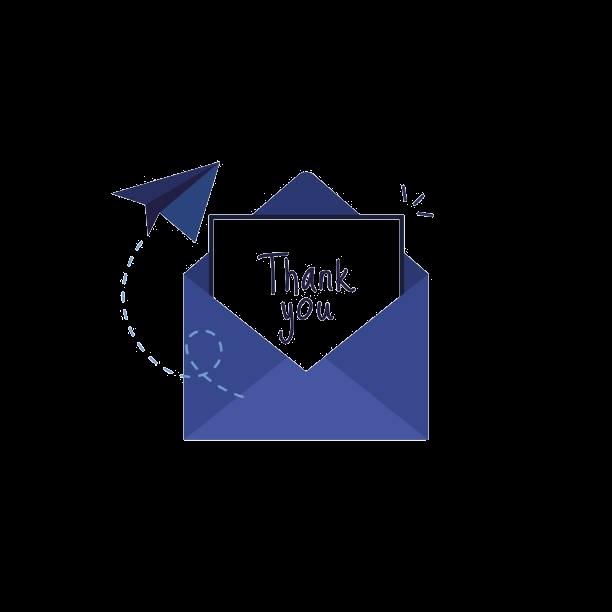
3 minute read
How to Write a Thank You Email After an Interview
You’ve just finished you’re really excited about. You know you should send a thank you note to your interviewers, but you not sure what to write. How much detail should you include? Should you send an email to every person you interviewed with? And what’s really the best way to follow up?

How to Write a Thank You Email
Your email should be short, sincere, and sent within 24 hours of your interview.
1. Address the email to the person who interviewed you and make sure you spell their name correctly. If their name is Christopher and they asked you to call them Chris in the interview, address them as such in your follow-up. If you interviewed with multiple people, it’s a good practice to send each person a brief message as well.
2. Thank the person for their time and consideration.
3. Briefly highlight your draw to the organization. David Lancefield, a former partner at PwC and now CEO coach, suggests that candidates “call out an aspect of the conversation that was particularly interesting or share a helpful hook to help them remember what you spoke about.”
4. Express your continued interest in the job opportunity.
5. Offer to answer any questions. Lourdes Olvera-Marshall, who teaches networking and career management courses at NYU, recommends jotting down quick notes when you’re interviewing. Write down your interviewer’s name, what you discuss, and a few key words to trigger your memory, so you can make your follow-up message more meaningful. As she told me, “The thank you note starts during the interview.”
What to Avoid in Your Thank You Email
If you don’t want to leave the interviewers with a bad impression, avoid these three common mistakes.
1. Adding too much detail
Remember that the intention of the message is to say thank you, not to pick up where your interview left off. “Your follow-up is not the place to add all the things you wish you had highlighted in your interview,” Olvera-Marshall warns. When you do, you run
By HBR.org
the risk of appearing desperate or like you weren’t prepared for the interview.
2. Making requests
People are busy. Avoid requesting anything that creates additional work. You want to show your interviewer that you’re easy to work with.
3. Typos
And of course, don’t forget to review your email for grammar and spelling before sending. This is an example of your communication.
Why Is It Important to Send a Thank You Note?
Beyond it being a nice gesture, there are multiple bento sending a follow-up message after an interview.
It creates a positive connection with the Interviewer(s).
No matter how well your interview went, many hiring managers squeeze multiple interviews into their busy schedules. A thoughtful message helps you leave a lasting positive impression after the interview is over.
2. It helps you stand out from the crowd.
Investing the time to send a thank you increases your chances of standing out from other applicants. One study found that only one out of four candidates sent thank you messages after their interviews, yet 80% of HR managers said those messages were helpful when reviewing candidates.
3. It’s an opportunity to demonstrate your professionalism and people skills.
It’s one thing to tell an interviewer you’re detailoriented and work well with others it’s another to show them. A well-crafted and timed thank you message illustrates your follow-up, your ability to capture the meeting’s essence in writing, and that you understand the importance of expressing your appreciation for others.
4. It confirms your interest in the job.
Hiring managers understand that candidates may be interviewing for multiple jobs at the same time. Busy themselves, leaders don’t want to invest time in a candidate who is not invested in the role they’re hiring for. A thank you message confirms that you’re both interested and excited about the role and worth following up with.
You may send your message and get a response in minutes, or you may never hear back at all. Either way, investing 15 minutes to express your appreciation may be the difference between getting the job or getting lost in the crowd..
https://www.collegecentral.com/keiser/ *Remember to select eCampus when registering.
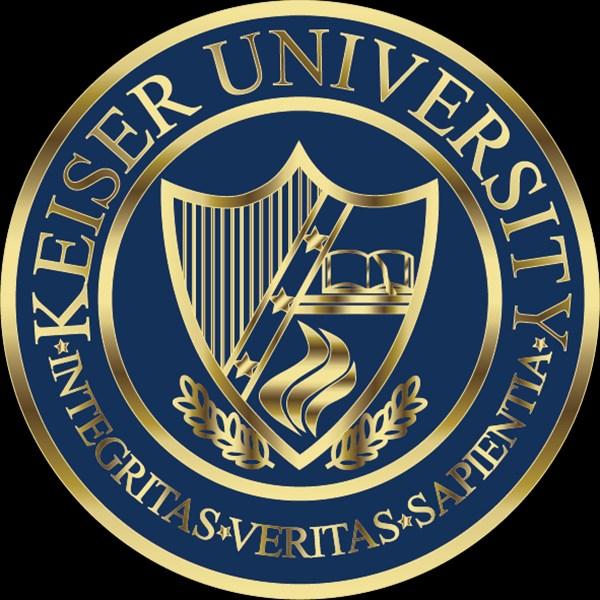
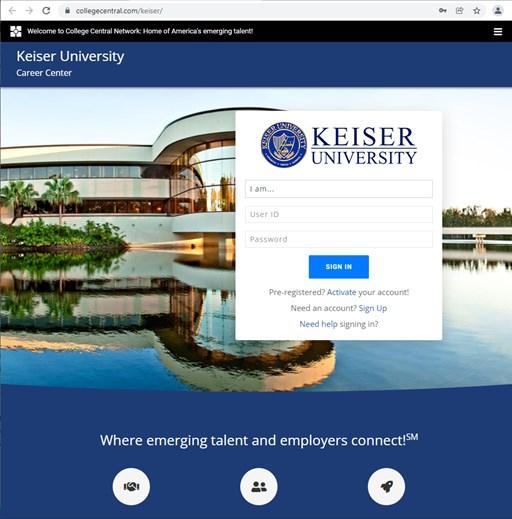
What is College Central Network? Acareer advancement gateway
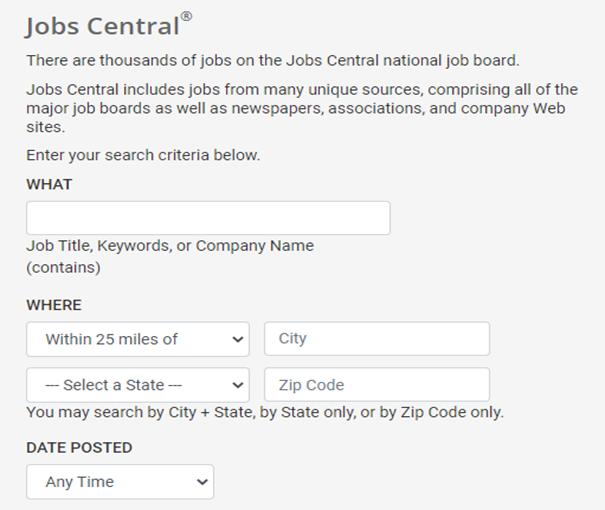
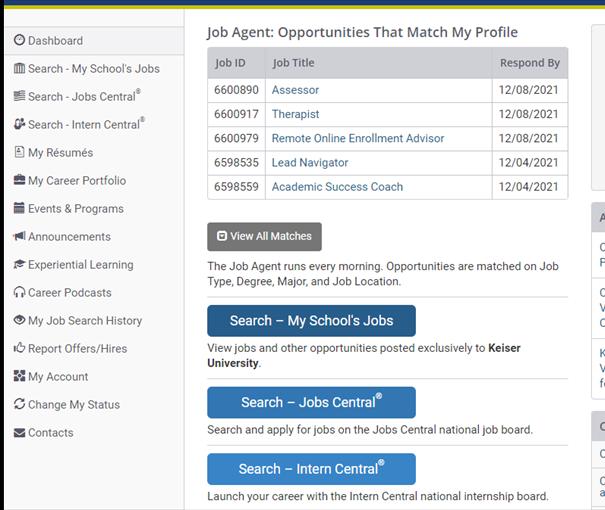
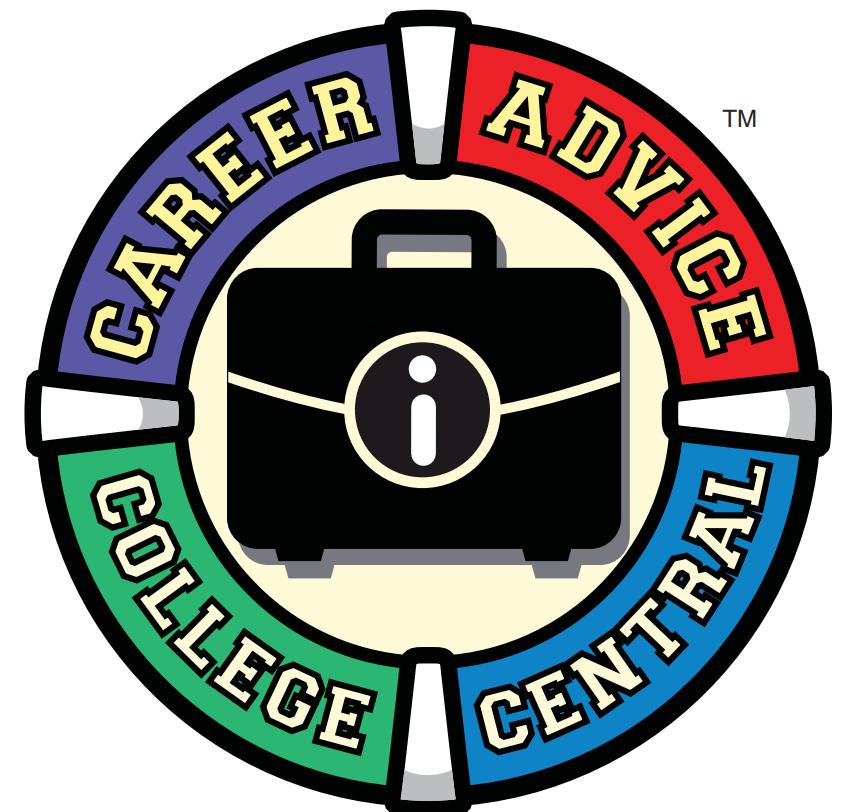
Who is it for?
Active college students &Alumni students
Why College Central?
Committed to helping you reach career goals.
Free Service to students, alumni, and employers.









